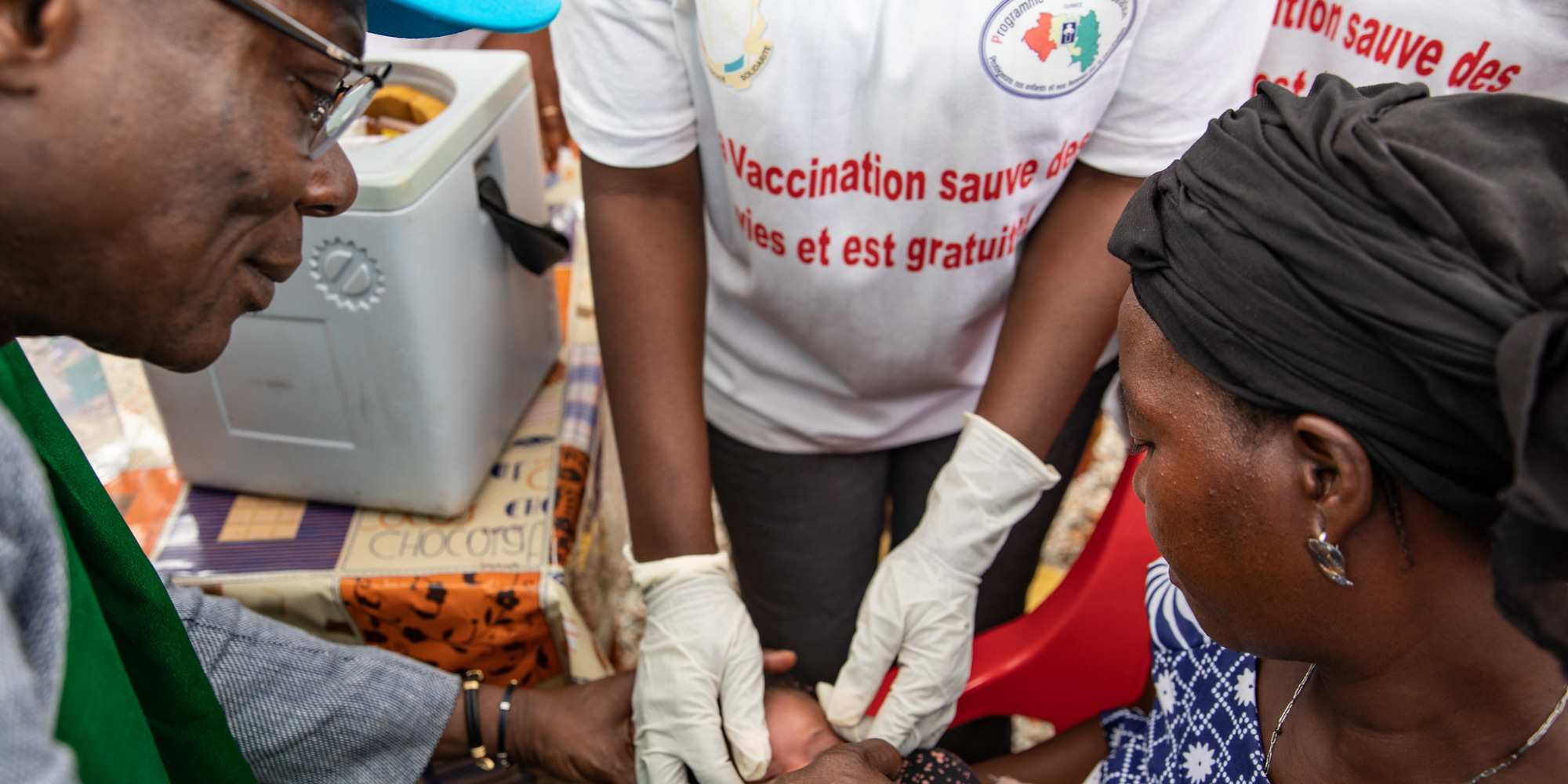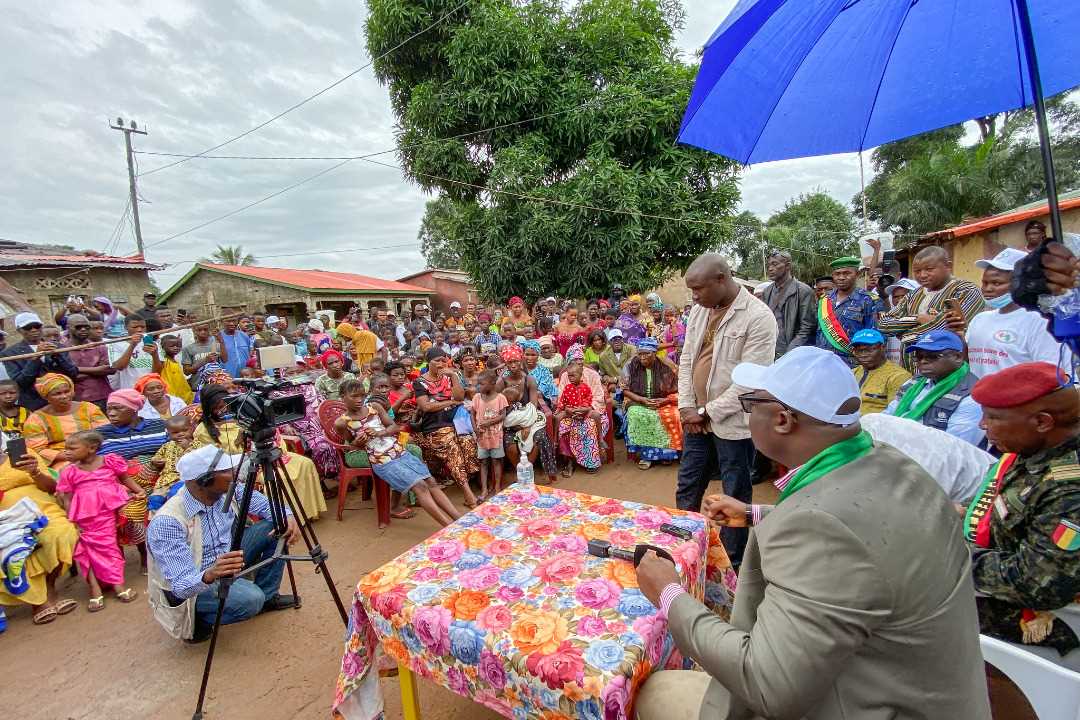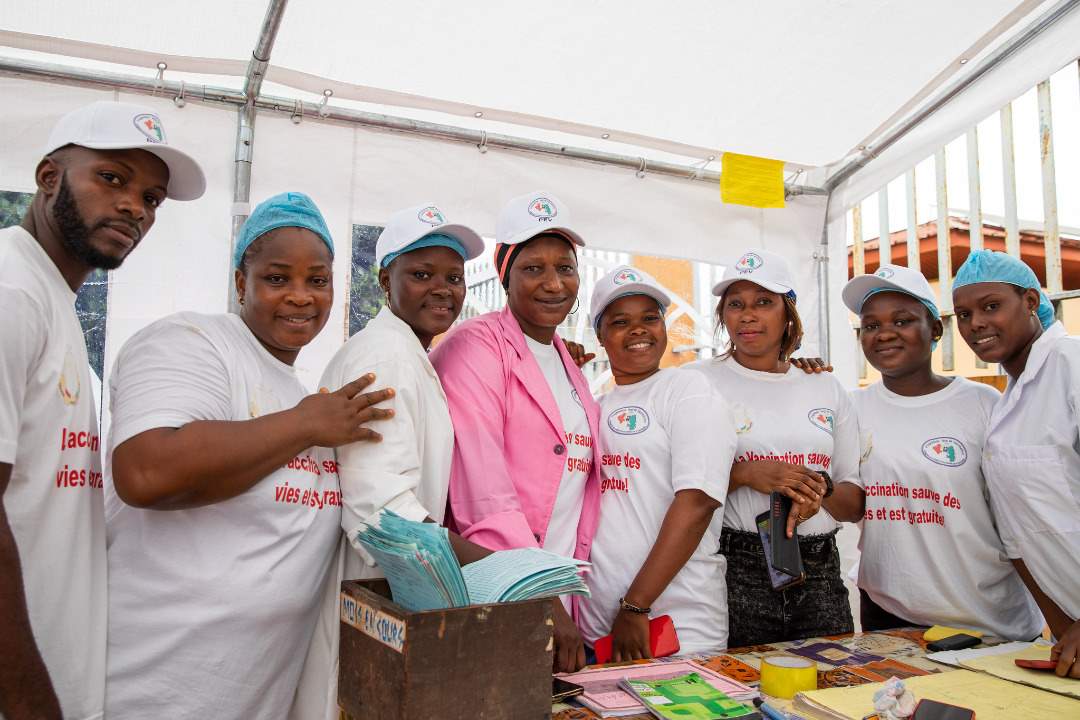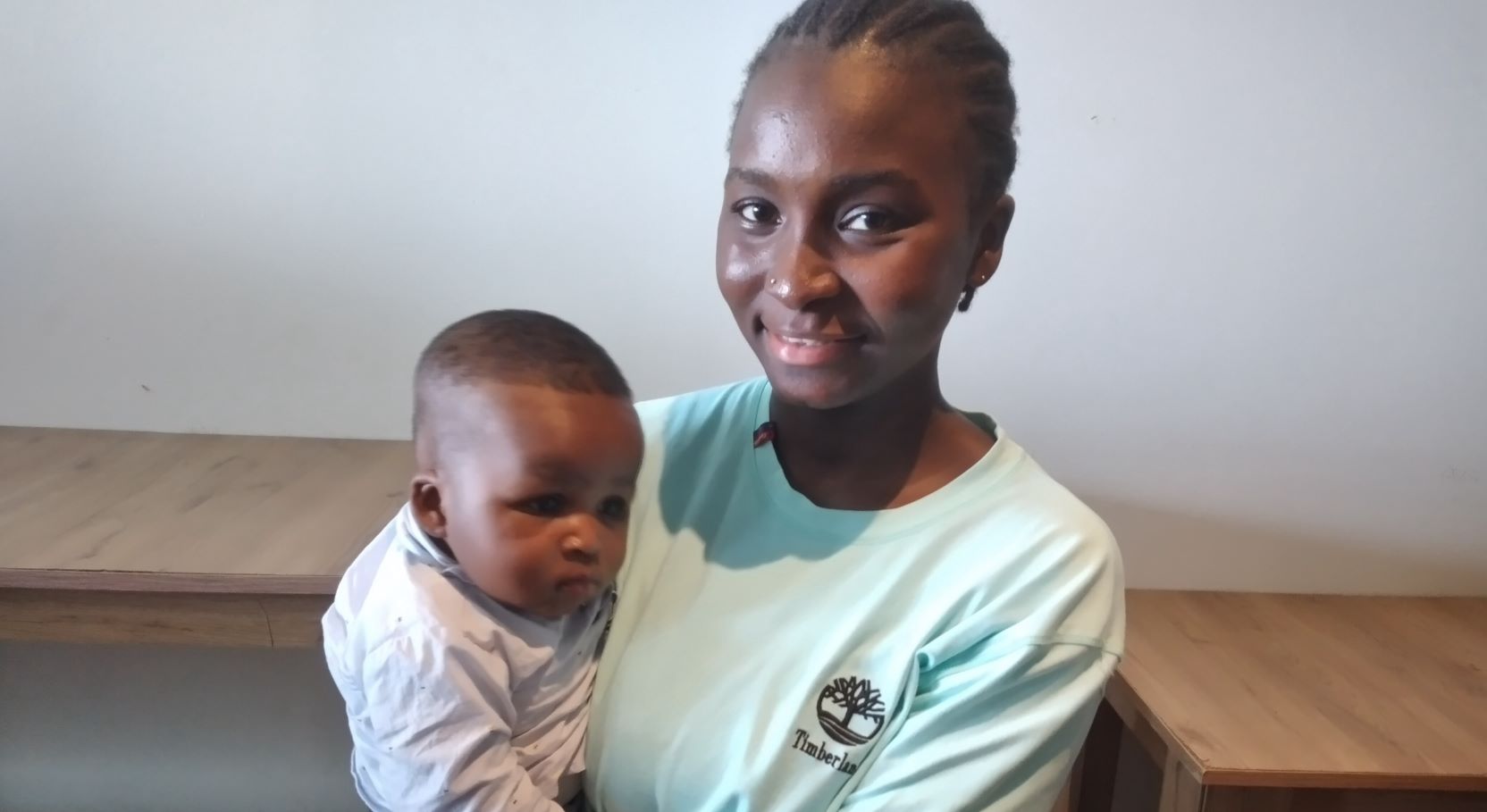Routine immunisation in Guinea: A mountain to climb to find zero-dose children
As vaccination activities ramp up post-pandemic, the west African country’s focus is on zero-dose children – kids who have never received a single vaccine.
- 13 September 2023
- 6 min read
- by Alpha Abdoullaye Diallo

Maférenya, Wednesday, 21 June 2023, 09:40. The clouds are gradually dissipating in the sky over this sub-prefecture, located some 70km from Conakry, the Guinean capital. Prime Minister Bernard Goumou, accompanied by representatives of the health system's partners, including Gavi, the Vaccine Alliance, is heading for a make-shift vaccination outpost, set up in a tent.
Across the way, a woman is sitting on a chair, happily holding her baby of just a few weeks old. The Prime Minister helps administer the infant a dose of vaccine, to the sound of applause. This is the official launch of Intensified Vaccination Activities (IVA) in Guinea.
Prime Minister Bernard Goumou has pledged to increase vaccination coverage by 20 points by the end of 2023, from 47% to 67%.
The following day, Gavi and partners, including WHO, UNICEF, the World Bank, the Bill & Melinda Gates Foundation, the West African Health Organization (WAHO) and the NGO PATH visit the vaccination centre for migrants at Jean Paul II in Ratoma, a sub-prefecture in Conakry region.
Here, the Ministry of Health and Public Hygiene and the International Organization for Migration (IOM) are launching a new partnership, funded by Gavi, to access mobile and hard-to-reach populations with vaccines.
The aim: to vaccinate some 360,000 of these at-risk people, and provide technical assistance to the Expanded Program on Immunization (EPI) and the Agence Nationale de Sécurité Sanitaire (ANSS).
Tens of thousands of zero-dose children
Over the previous few days, Gavi and its partners have been meeting with ministry after ministry to help ensure the EPI's success in reaching all children and pregnant women.

Credit: ©UNICEF Guinea/SDesjardins
The challenge is immense. One child in every two has not completed his or her course of vaccinations. Of the 192,000 children born each year, only 24% receive a complete cycle of vaccinations, according to the 2018 Demographic and Health Survey (DHS). Moreover, the DHS attests that more than 380,000 pregnant women are either unvaccinated or under-vaccinated.
That lack of vaccination leaves the door open for vaccine-preventable diseases, paving the way to epidemics.
Guinea is no stranger to runaway outbreaks: recently, whooping cough, measles and yellow fever have rippled through the population. Vaccination is therefore essential, not only to protect children but also the entire population.
Prime Minister Bernard Goumou has pledged to increase vaccination coverage by 20 points by the end of 2023, taking it from 47% to 67%.
"One hundred and ninety-two thousand children have never been vaccinated, and one child in every two has not completed his or her course of vaccinations, exposing them to fatal and/or disabling diseases such as measles and polio," underscores Dr Marthe Sylvie Essengue Elouma, Gavi's Regional Director for Central and West Africa.
Low vaccination coverage, she continues, "contributes to a very high infant mortality rate". According to United Nations figures, one child in ten here does not reach the age of five years old.
To reverse this trend, Prime Minister Bernard Goumou has pledged to increase vaccination coverage by 20 points by the end of 2023, from 47% to 67%. "It's a good ambition. This already puts us on the right track. We're confident that with the resources and political will available to us, we can make great progress by the end of the year," says Gavi Country Manager Marius Keller.
"The vaccines are available, the health personnel are available. All communities and administrative authorities should send their children to be vaccinated so that they are fully protected," says Dr Félix Ackebo, UNICEF representative to Guinea. He calls on the authorities to communicate and to raise awareness in local languages "so that everyone understands the importance of vaccination".
In addition to the availability of vaccines, 90% of the health facilities offering vaccination services have the refrigerators they need to ensure quality conservation of the products, emphasises Dr Albert Camara, deputy national EPI coordinator.
"The remaining 10% are experiencing technical problems. We're looking at ways to fix these problems and further optimise vaccination services," he adds.
Have you read?
To get to the targeted 67% coverage rate, Guinean health authorities plan to vaccinate 500,000 children by the end of the year – that's 41,628 per month. "Some 3,600 vaccinators have been mobilised in order to achieve this," says Dr Gassim Cissé, national coordinator of the Expanded Program on Immunization (EPI).
For his part, the Prime Minister assures us that, "The government will deploy all necessary means to achieve this objective within the allotted time."
Catching up after COVID-19
COVID-19 has had a major impact on routine vaccination in Guinea. "The population was wary of health facilities. There was not enough communication at the start of the campaign against COVID-19, creating a certain mistrust of health facilities. This has slowed down attendance at vaccination services," recalls Dr Albert Camara.

Credit: ©UNICEF Guinea/SDesjardins
Now, the challenge is to locate those 192,000 children who have not received a single dose of vaccine. "It's an intensive catch-up effort," Camara notes, thanking the technical and financial partners for their support along the way. "When you hear the word, 'vaccination', it indicates that vaccines are available. They have made these vaccines available to us," says Dr Bachir Kanté, senior advisor to the Minister of Health and Public Hygiene.
The Gavi Alliance partners are working in concert to support Guinea's life-saving endeavour. For example, the World Health Organization (WHO) plays a crucial role in developing customised microplans to catch up unvaccinated children and reinforce vaccination campaigns. Similarly, the Gates Foundation is providing invaluable support to a routine immunisation programme in Kankan, a city in eastern Guinea, aimed at ensuring equitable access to vaccines for the most vulnerable communities.
These initiatives testify to the partners' collective commitment to fighting vaccine-preventable diseases and promoting health for all.
Increasingly motivated parents
While public reluctance has hampered routine vaccination in Guinea for a long time now, this is no longer necessarily the case, explains Ibrahima Camara, a community leader. "There's less reluctance because the field is now apolitical. Everyone speaks the same language. In the field, parents are motivated to have their children vaccinated against diseases that could hinder their development," he explains with palpable enthusiasm.
"I'm happy to have my child vaccinated. I invite all women to have their children vaccinated," says Yarie Bangoura, who has come to have her six-month-old daughter vaccinated at the Maférenyah primary health centre.
Tech-based vaccination tracking
To monitor vaccination progress in real time, the EPI has developed a tool known as "the dashboard". According to Abdoulaye Diallo, a consultant working for Dalberg, who designed the tool, it can be used to track the progress of vaccination activities continuously, and adjust recommendations instantly.
"It's a tool integrated into the national system called District Health Information Software 2 (DHIS2). It is deployed at all levels, like in health centres when they carry out vaccinations and report data into the system every month. This data is fed back to the national level, and the dashboard makes it possible to analyse it in real time," he explains.
This tool, available since the end of 2022, is accessible free online to anyone with a DHIS2 account and an Internet connection, he explains.






